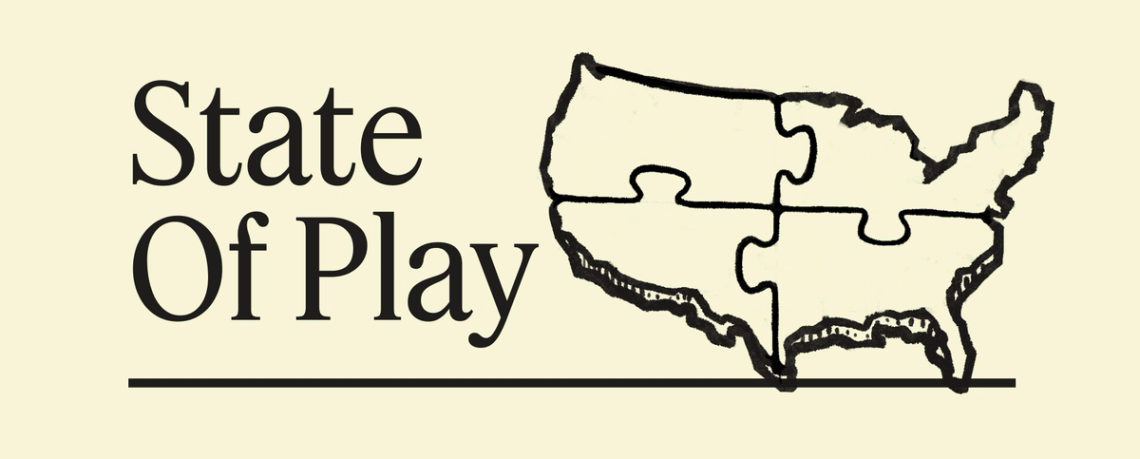 Lisa Lake/Getty Images for SiriusXM Lisa Lake/Getty Images for SiriusXMTHE SCENE Thirty-seven minutes into his interview with Jordan B. Peterson, Robert F. Kennedy, Jr. explained why he was doing it. Television had been a “new phenomenon” when his uncle ran for president in 1960. Twitter “played a key role in getting Donald Trump elected.” The 2024 campaign would be “decided on by podcasts,” especially because President Biden wouldn’t debate him. “I think the podcasts have the capacity, this election, for reaching people and allowing dissident and insurgent candidates like myself to end-run the corporate media monoliths,” Kennedy explained. The reach of people like Peterson and Joe Rogan was so vast, he said, that a candidate could “reach large numbers of Americans without going onto the networks.” DAVID’S VIEW Kennedy is right about the reach he’s getting. His two-month-old run is grabbing headlines and attention for a candidate who the Democratic Party barely acknowledges. That’s frustrated fact-checkers, who’ve been refuting Kennedy’s interpretation of data on vaccine safety, wifi radiation, and election integrity for 18 years, dating back to when his blockbuster Rolling Stone story on supposed vaccine dangers was retracted. Even after Peterson’s interview was struck from YouTube, Kennedy’s speculation that a “soup of toxic chemicals” was increasing “gender dysphoria” made news. Kennedy certainly isn’t the first candidate to try and break out via podcast appearances, or leverage them for a boost. Pete Buttigieg helped put himself on the political map with an interview on the Ezra Klein Show, then hosted by Vox, where he talked about issues like reforming the Supreme Court that other candidates weren’t touching at the time. Bernie Sanders famously sat down with Rogan in 2020, blowing off some outrage from progressives. But Kennedy’s podcast tour is interesting because, for all intents and purposes, it is his campaign. He has held just a few in-person events in primary states — and none in South Carolina, which Democrats are hoping to push to the front of their calendar. Instead, he’s testing the potency of alternative media sources, especially the sort of post-left, anti-establishment, “free thinker” outlets that grew as traditional news outlets shrunk. There’s logic to that strategy. There are fewer local political reporters in those early states Kennedy is mostly skipping, with less access than they had four or eight years ago. And some podcasts, like Peterson’s, have a reach comparable to national media. An estimated 632,000 viewers tuned in for all or part of Mike Pence’s town hall this month; Mike Pence’s hour-long interview with Peterson, released this week, has clocked more than 333,000 views on a channel with more than 7 million subscribers. “You don’t necessarily need traditional gatekeepers in order to reach tens of millions of people,” said Saagar Enjeti, the co-host of the YouTube show and podcast Breaking Points. Its two interviews with Kennedy have nearly 650,000 combined views; Kennedy’s first televised interview as a candidate, a testy sit-down with ABC’s streaming newscast, has just over 100,000 views on YouTube. “When he has the opportunity and the ability to reach a lot of people, why would he have to put himself in a situation like that ABC News interview?” Enjeti added. “That was a catastrophe for mainstream media organizations that might want to talk to him.” Unlike ABC, the outlets giving Kennedy the most exposure are simply letting him talk, at a decent length, and not focusing too much on the story of the day. Look at the Joe Rogan Experience, which put Kennedy on air for three hours. After some small talk, Rogan asked an open-ended question: “How did you adopt these opinions that people find so controversial?” The candidate went on for more than 30 minutes, without interruption, about suing polluters in the Hudson Valley; claims that other interviewers might have pushed back on got a friendly airing. ROOM FOR DISAGREEMENT Caveat time: Kennedy’s alt-media barnstorming may not be helping him with Democratic voters. When he entered the race, public polling put his support in the teens. Two months later, after copious earned media, those numbers haven’t budged, and the share of primary voters who say they won’t vote for him is rising. His challenge is that he’s running for the nomination of a party whose voters overwhelmingly do trust the mass media, as well public health authorities and vaccines. The Democratic base is not predominantly made up of Peterson or “All-In” listeners. Kennedy’s media strategy seems better geared to more independent voters, for many of whom frustration with the media isn’t ideological. Instead, it comes from political fatigue. Polling released by the AP last month — funny enough, in a partnership with Robert F. Kennedy Human Rights — found 74% of Americans agreeing that the media did too much to “increase political divisions.” A show like Rogan’s can help reach that crowd. Ari Rabin-Havt, the deputy campaign manager for the 2020 Bernie Sanders campaign, said that Rogan’s questioning helped the Vermont senator reach a new audience. Rabin-Havt recalled how surprised he was, after the interview, when the candidate dined in Miami and was approached by “a 50-year old Cuban woman” telling him she’d loved him on Rogan. “There was no interview I’ve ever been a part of, with any politician, where I saw as clear an impact as I did with Joe Rogan,” Rabin-Havt said. “The people who watch MSNBC and Fox — their minds are made up.” In one way, Kennedy has less competition than Sanders did: President Biden has given a single interview, to MSNBC, since he announced for a second term. Lis Smith, the Democratic communications consultant who made Pete Buttigieg available for endless new media interviews during his 2020 campaign, explained that spending time with outlets that would let the candidate talk, and ask anything, introduced the candidate to people not inclined to trust politicians. “Anyone can survive a two minute TV hit; all you need is a team that can produce topline talking points for the likely questions,” Smith said. “Once people were able to hear him in the longform format, they realized — this guy is the real deal, he’s not just running to sell a book, he has deeply held values.” Buttigieg’s campaign ended a few weeks after the Iowa caucuses. But he repeatedly yanked the conversation in a new direction, which Kennedy has begun to do. THE VIEW FROM REPUBLICANS The alt-media circuit may be a moral natural fit for Republican politicians, whose voters eagerly get information outside of established news sources, which they don’t trust. The project of replacing legacy media loyalty with new conservative brands has made huge gains since 2020, led by Ron DeSantis, who’s taken some questions from the campaign press corps but only given interviews to conservative outlets. Mike Pence’s campaign has played more ball with traditional media than Kennedy or DeSantis, but his interview with Peterson delivered what quick TV hits and gaggles can’t. When Pence explained his opposition to gender-affirming medicine for minors — “There’s a reason we don’t let kids drive cars until they’re 16” — it didn’t halt the conversation, and it made news. “The sheer size of the audience, of folks that are ideologically aligned with us, is an opportunity that we can’t pass up,” said Pence spokesman Devin O’Malley. “And it allows you to highlight the contrasts with other candidates, as the voice of reason. This interview comes out at a time when the Trump and DeSantis teams are bickering about personnel and lamb anatomy.” NOTABLE - On his new Twitter show, Tucker Carlson praised Kennedy’s campaign and said he was already “winning” by changing the conversation. In a CNN column, Jake Tapper refuted Kennedy’s claim that a “documentary” they had worked on was “killed by corporate” – Tapper covered Kennedy’s 2005 vaccine controversy in a segment that aired on ABC News, an example of the media gatekeeping that the candidate can now avoid.
| 










